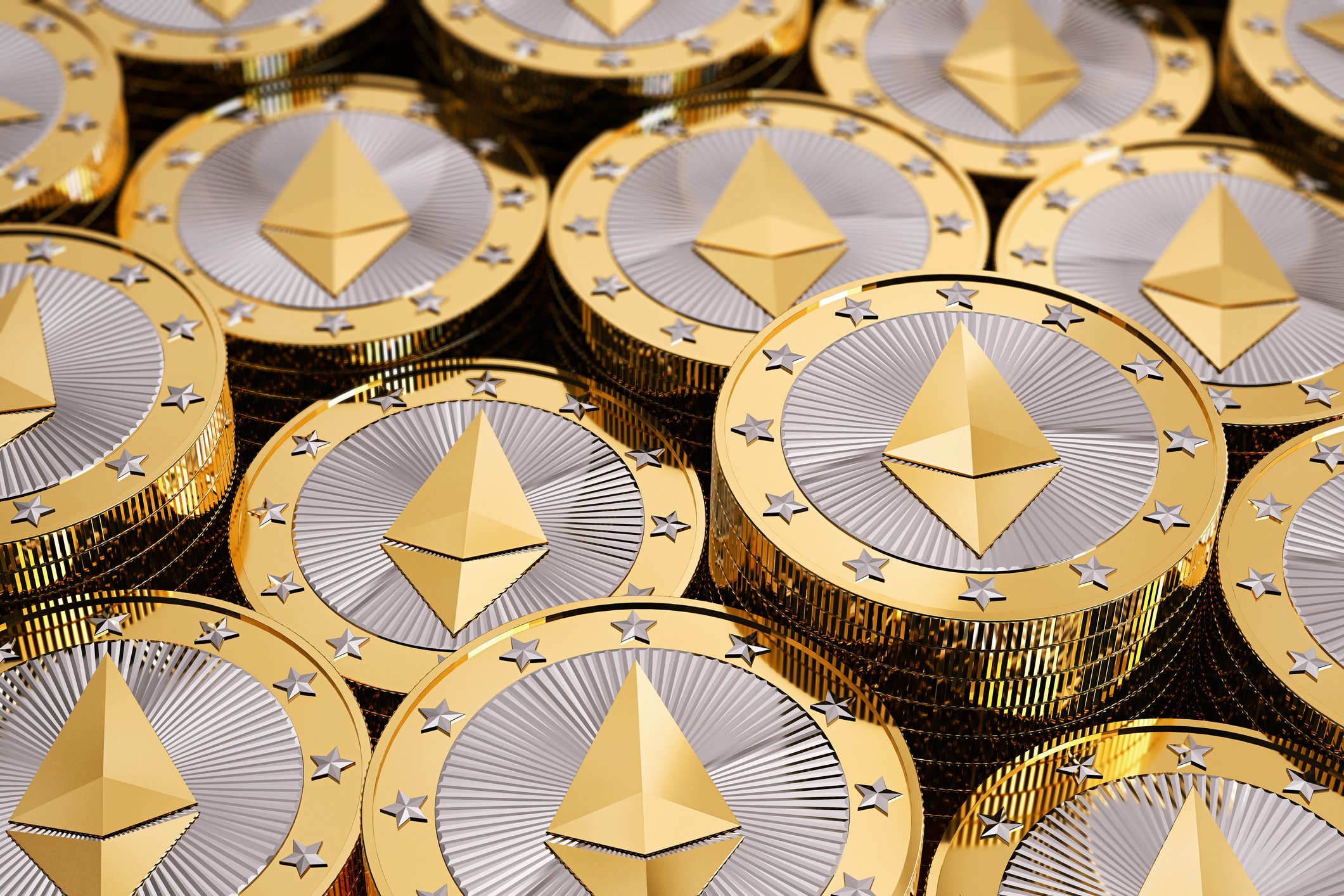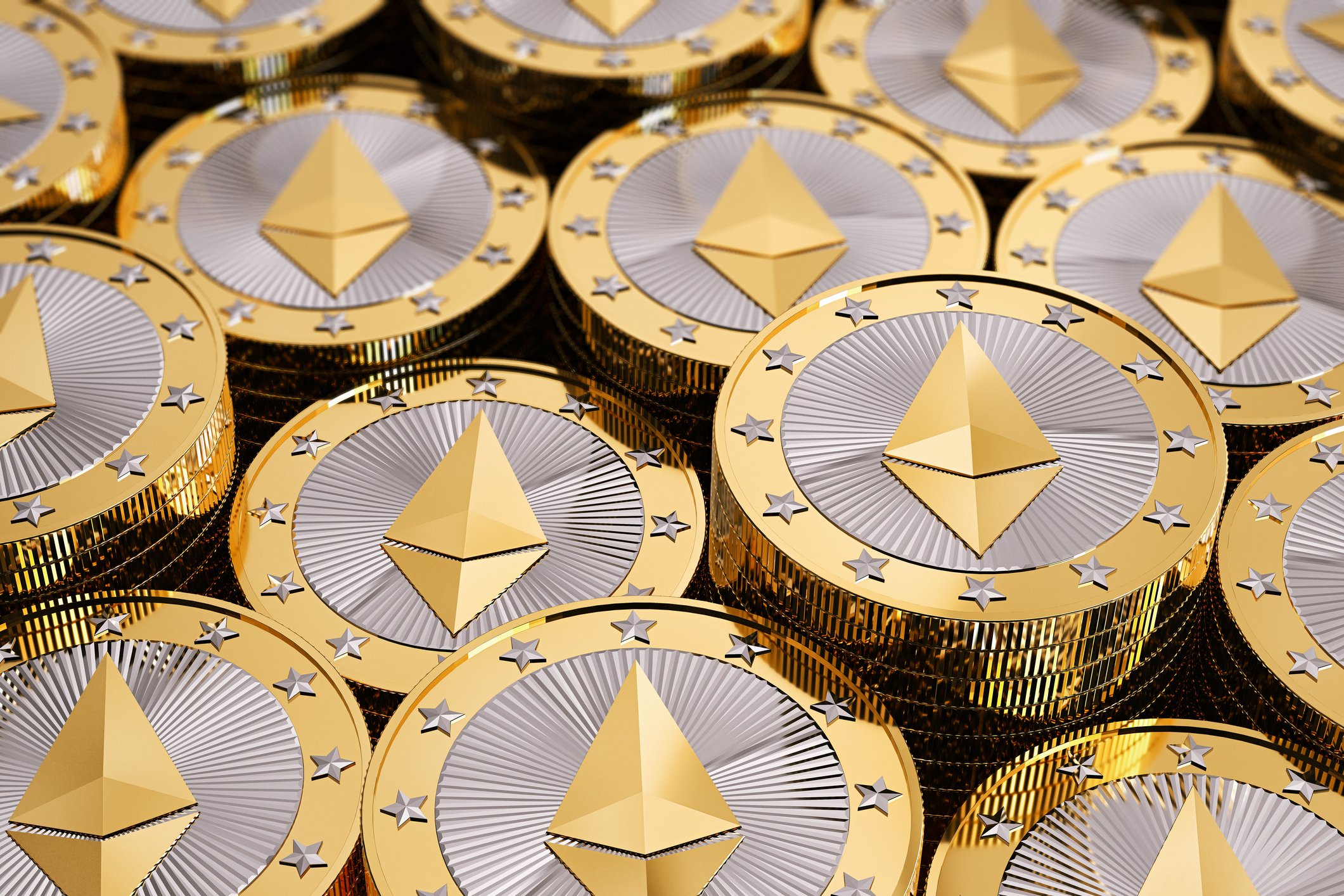Ethereum (ETH 0.36%) is on fire. Its price has risen by 110% during the past three months. One major driver is optimism about the impact of the Genius Act, which sets a framework for stablecoins and is the first piece of crypto legislation to become law in the U.S. Many stablecoins are built on Ethereum's blockchain, and any industry growth could translate to more activity on its network.
Another positive tailwind is that companies are starting to add Ethereum to their corporate treasuries. SharpLink Gaming (SBET 11.65%) is leading the way, purchasing 74,656 Ethereum coins between July 7 and July 13, taking its holdings to 280,706 -- worth more than $1 billion at time of writing (July 21). It now holds more of the popular crypto than any other entity in the world, including the Ethereum Foundation.

Image source: Getty Images.
Why investors should take note
In recent years, there's been a significant uptick in the number of companies adding Bitcoin (BTC +1.00%) to their corporate treasuries. Changes in accounting rules mean companies can record the fair value of their crypto assets on their balance sheets. (Previously, crypto was recorded as an intangible asset, valued at its lowest price during the holding period.) However, until recently, businesses were more interested in Bitcoin than Ethereum.
SharpLink, an online gaming and sports betting company, is ringing in the changes. In May, it announced plans to develop an Ethereum treasury and appointed Joseph Lubin, one of Ethereum's co-founders, as chairman. The company says its Ethereum acquisition is more than a trade; "it is a commitment to our long-term vision."
SharpLink funded its Ethereum purchases by issuing equity. It recently raised about $425 million through a private investment in public equity (PIPE) funding round, as well as an additional $64 million in at-the-market (ATM) sales. SharpLink has already staked almost all of its holdings and plans to reinvest those gains. Staking not only generates yield but also contributes to the health of the Ethereum ecosystem.
Here are two reasons the move could be noteworthy for crypto investors:
1. Other companies may follow suit
According to BitcoinTreasuries.net, more than 150 public companies now hold Bitcoin. MicroStrategy (MSTR 4.91%) (now doing business as Strategy) leads the way with more than 600,000 bitcoins on its books. The accumulation has been one of several factors that's driven Bitcoin's price to new highs this year, though the longer-term impact remains to be seen.
A couple of companies have already joined SharpLink in buying Ethereum, including Bit Digital (BTBT 2.71%), BitMine (BMNR 7.79%), and GameSquare (GAME 3.70%). The Securities and Exchange Commission (SEC) said in May that staking cryptos are not automatically securities. This, alongside the potential of increased regulatory clarity from Washington, has paved the way for companies to acquire Ethereum. That, in turn, could have a positive impact on prices.
2. It adds stability to the Ethereum network
The big difference between Bitcoin and Ethereum corporate treasuries is that companies can stake Ethereum. That's great for the companies because they are not dependent on price increases alone to generate returns.
One of the concerns about Bitcoin treasury companies is that they may find they are overextended and be forced to sell at a loss if the price falls dramatically. According to Galaxy Digital (GLXY 4.39%), companies that have bought Ethereum have done so by issuing equity in a manner similar to SharpLink. That means there's less risk of a spiral, where falling prices trigger forced corporate sales and prices fall even further.
Moreover, by staking Ethereum, these corporate holders help to keep the network secure. Crypto staking involves locking up tokens to act as validators on a network, verifying new blocks on the chain. The more staked Ethereum, the more resistant the network is to hackers. Coinbase (COIN 2.70%) estimates that about 30% of Ethereum is currently staked.
Could Ethereum hit a new all-time high?
Bitcoin has surged since the election, repeatedly setting new highs. In contrast, Ethereum has struggled to break the $4,000 barrier, let alone surpass its 2021 high of almost $4,900. That appears to be changing, as a combination of corporate and institutional accumulation, shifting regulatory tides, and improving sentiment are all driving an Ethereum rally.

CRYPTO: ETH
Key Data Points
SharpLink's acquire-and-stake strategy has already gained traction with a couple of companies. Analysts predict that this is only the beginning, particularly as lawmakers remove some of the compliance roadblocks. SharpLink may have created a template that other companies can follow.
There are no guarantees in what remains a volatile asset class, and some investors have raised concerns about centralization because a single entity has so much control. Nonetheless, in the short term, it seems as if Ethereum's recent momentum still has a way to run.













